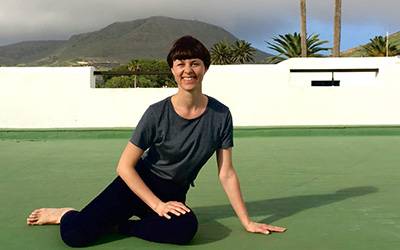Catherine Borra - Biosocial Medical Anthropology MSc
27 October 2020

The Biosocial Medical Anthropology MSc was a spring board for me. I came to it after years of work in healthcare, where I'd increasingly become interested in health problems that sat at the boundary between physical health, mental health and society. Having an academic background in both science and humanities, I was looking for a field that could accommodate both approaches - the scientific approach on one hand, and a more narrative one on the other. In particular, I was looking for methods to investigate the mechanisms by which culture and social circumstances can influence the body, and vice-versa.
The biosocial attempts to reconcile the split between nature and nurture, and is a great framework to tackle problems that aren't either purely physical or purely sociological. During my time on the programme, I attended courses like statistics and anthropological research methods, as well as developing an understanding of the various frameworks that are used within the biosocial. Being able to develop a method to approach biosocial problems was particularly useful, and fulfilled my need to find a framework for my interests. I think that academic environments that support a conversation between the harder and softer sciences are rare and valuable, especially for people who are interested in mixed methods research.
The anthropology department is very inclusive, and there are opportunities to share seminars with other specialties - which I definitely took advantage of. Even during the lock-down period, the course remained engaging and our class worked well. It was good to have staff available to talk when needed, and generally it was a positive community to be part of. I was working part-time during the course, which can be hard at times, but I felt well supported and included throughout.
Since then, I have been been awarded a scholarship on the Soc B doctoral training programme, which also focuses on biosocial research. I feel very lucky and excited about furthering this kind of research, especially at this particular moment in time when the pandemic has revealed how entwined health and social behaviour are. I believe that biosocial approaches, and the use of anthropological methods to deepen the understanding behind social and cultural health-related behaviours, will be increasingly relevant in the coming years.
 Close
Close

